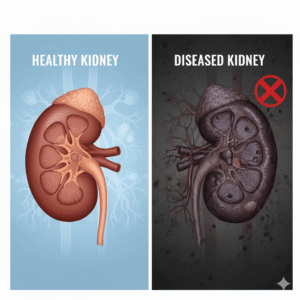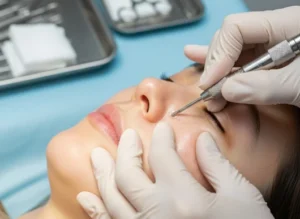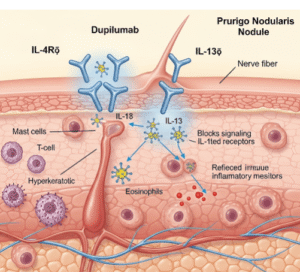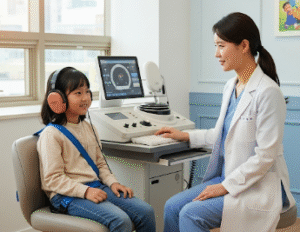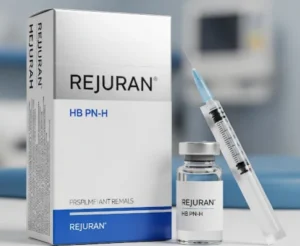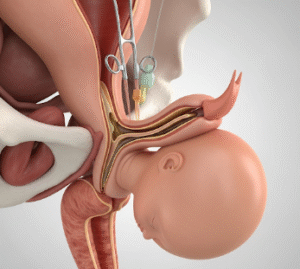Overview
Anosmia, or loss of smell, is the partial or complete inability to perceive odors. It can occur suddenly or gradually and may affect one or both nostrils. Smell plays a crucial role in detecting dangers like smoke or spoiled food and contributes to taste perception, appetite, and overall quality of life. In Korea, advanced ENT (ear, nose, and throat) clinics and hospitals offer specialized diagnostic evaluations and treatments for anosmia, combining modern imaging, nasal therapies, and rehabilitation techniques to restore olfactory function whenever possible.
Key Facts
▶ Prevalence: Affects millions worldwide, with higher incidence in adults and older individuals.
▶ Types: Partial (hyposmia) or complete loss (anosmia).
▶ Common Symptoms: Inability to smell, altered taste, reduced appetite, and sometimes nasal congestion or infection.
▶ Causes: Viral infections, nasal obstruction, head trauma, neurological conditions, or congenital disorders.
▶ Treatment Options in Korea: Medical management, nasal therapies, olfactory training, surgical intervention, and supportive rehabilitation.
What is Anosmia?
Anosmia is defined as the complete or partial loss of the sense of smell, which can significantly impact daily life and safety. It may be temporary or permanent depending on the underlying cause.
▶ Acute Anosmia: Sudden loss, often caused by infections such as colds, flu, or COVID-19.
▶ Chronic Anosmia: Long-term or persistent loss, frequently due to nasal polyps, sinus disease, or neurological conditions.
▶ Congenital Anosmia: Present from birth due to developmental abnormalities.
Note: Anosmia can affect taste, appetite, and overall quality of life, sometimes leading to nutritional deficiencies or psychological stress.
What Symptoms Are Related to Anosmia?
▶ Loss of Smell: Complete or partial inability to detect odors.
▶ Altered Taste: Foods may taste bland or metallic.
▶ Reduced Appetite: Lack of smell can decrease interest in eating.
▶ Nasal Congestion or Blockage: Often associated with infections or sinus issues.
▶ Headaches or Facial Pressure: May occur with sinus-related anosmia.
▶ Safety Risks: Inability to detect smoke, gas leaks, or spoiled food.
▶ Emotional Impact: Anxiety, depression, or social discomfort due to altered senses.
What Causes / Possible Causes
Anosmia can result from various nasal, neurological, and systemic conditions:
▶ Viral Infections: Common colds, influenza, or COVID-19.
▶ Nasal Obstruction: Polyps, tumors, or severe congestion.
▶ Allergic Rhinitis: Chronic inflammation affecting nasal airflow and olfactory function.
▶ Head Trauma: Injury damaging the olfactory nerves or brain regions.
▶ Neurological Disorders: Parkinson’s disease, Alzheimer’s disease, or multiple sclerosis.
▶ Medications: Certain antibiotics, antihypertensives, or chemotherapy drugs.
▶ Congenital Causes: Developmental anomalies present from birth.
▶ Environmental Factors: Exposure to toxins, smoke, or pollutants.
When Should I See a Doctor?
▶ Sudden Loss of Smell: Especially after viral infection or head trauma.
▶ Persistent Anosmia: Lasting more than a few weeks without improvement.
▶ Associated Symptoms: Nasal obstruction, facial pain, or chronic sinus infections.
▶ Safety Concerns: Difficulty detecting smoke, gas leaks, or spoiled food.
▶ Neurological Symptoms: Memory loss, tremors, or cognitive changes.
▶ Impact on Nutrition or Quality of Life: Reduced appetite, weight loss, or psychological distress.
Tip: Early evaluation helps identify treatable causes and prevents complications related to nutrition, safety, and mental health.
Care and Treatment
Management depends on the underlying cause and severity of anosmia:
▶ Nasal Treatments: Saline sprays, corticosteroid nasal drops, or antihistamines for inflammation.
▶ Olfactory Training: Systematic exposure to scents to stimulate nerve function.
▶ Addressing Obstructions: Removal of nasal polyps, tumors, or treatment of sinus infections.
▶ Medication Review: Adjusting drugs that may contribute to smell loss.
▶ Nutritional Support: Ensuring adequate diet despite reduced taste perception.
▶ Psychological Support: Counseling for anxiety, depression, or social impact.
Treatment Options in Korea
Medical Evaluation:
▶ ENT Consultation: Detailed examination using nasal endoscopy and imaging (CT/MRI).
▶ Olfactory Testing: Objective assessment of smell function.
▶ Allergy and Infection Screening: Identifying treatable underlying conditions.
Advanced Therapies:
▶ Surgical Intervention: Endoscopic sinus surgery for chronic sinusitis or nasal polyps.
▶ Targeted Medications: Corticosteroids or antibiotics to reduce inflammation or infection.
▶ Olfactory Rehabilitation: Structured scent exposure programs under specialist supervision.
Monitoring & Support:
▶ Follow-Up Assessments: Tracking recovery or progression over weeks or months.
▶ Nutritional Counseling: Maintaining adequate diet despite altered taste and smell.
▶ Specialist Clinics: Korean ENT and rehabilitation centers provide integrated care for comprehensive management.
Outcome: With early detection and appropriate treatment in Korea, many patients experience partial or full recovery of smell, improved taste perception, and enhanced quality of life. Chronic or congenital anosmia may require ongoing adaptation and support.



